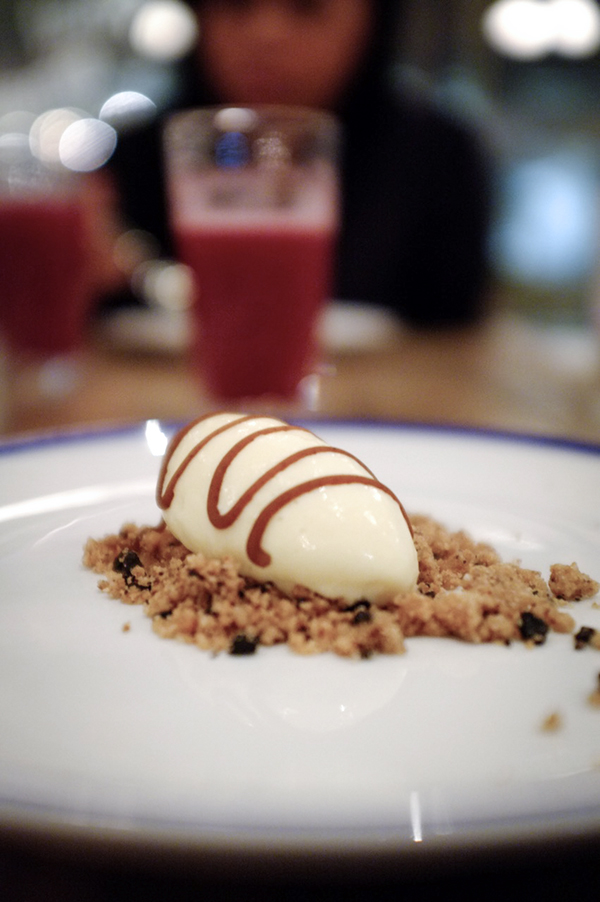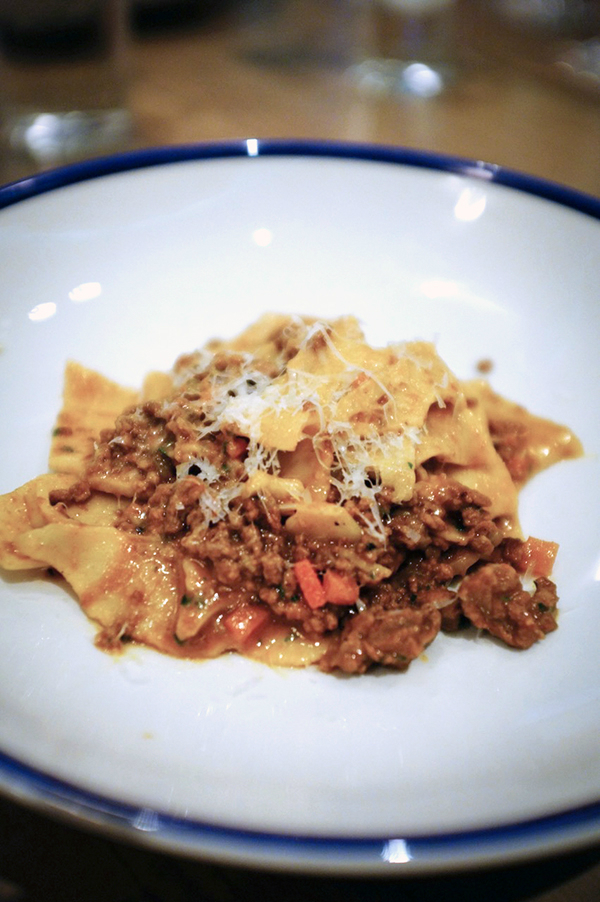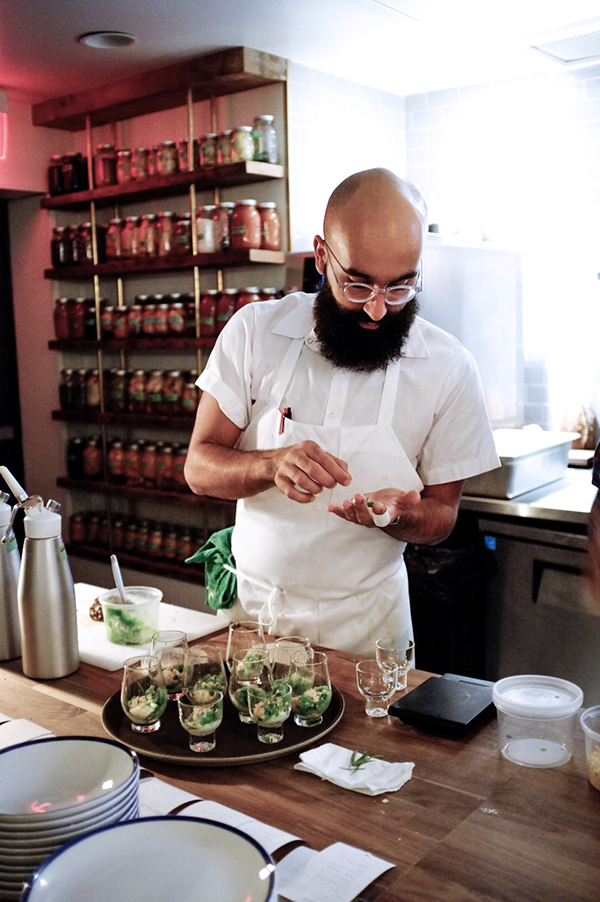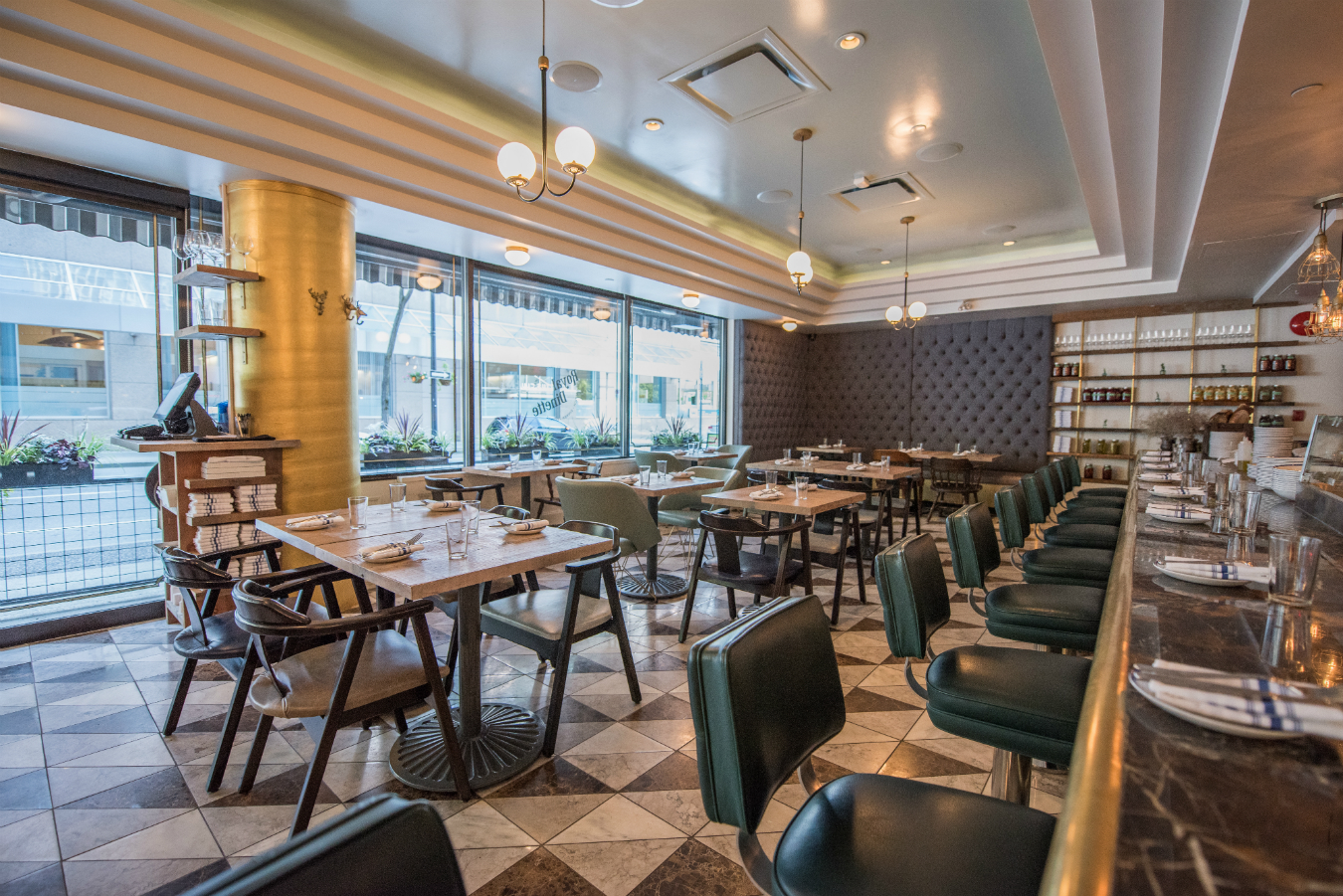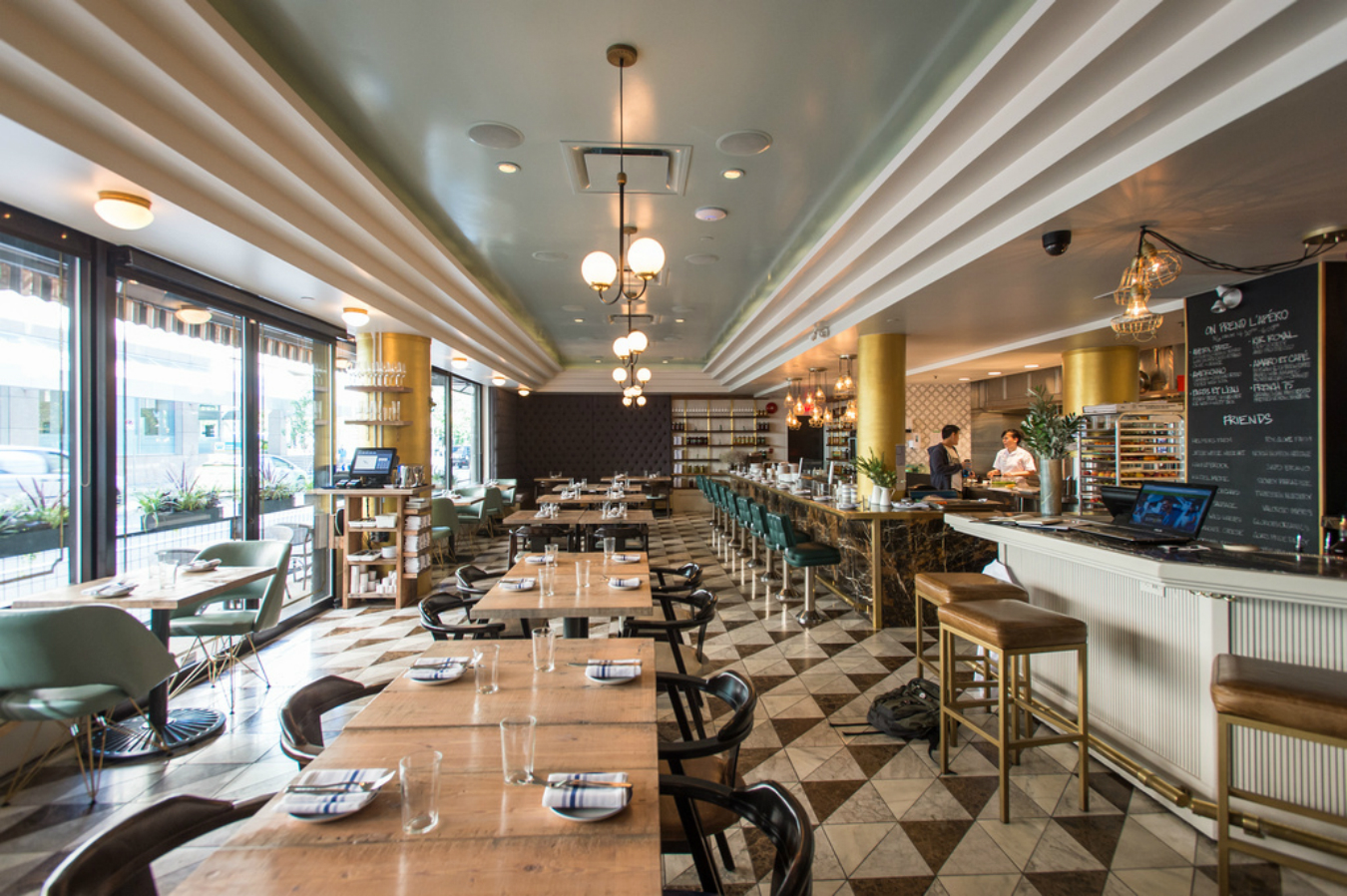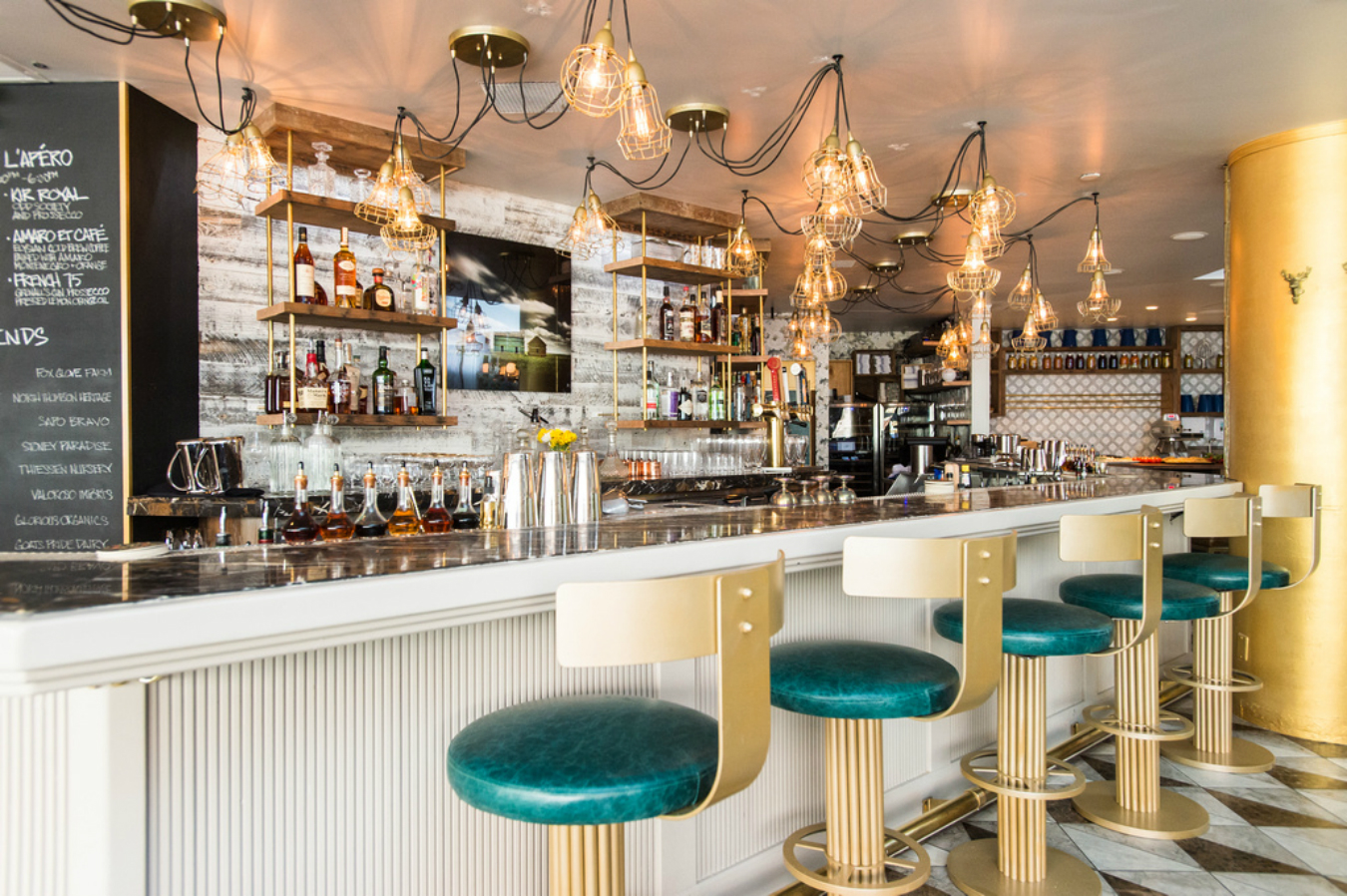It’s easy to sound glib when speaking about the myriad of green culinary movements from the last decade, but dining movements with more substance than what’s placed on the plate are a welcomed and quite revolutionary change. Cue Vancouver chef David Gunawan, whose South Granville outposts Farmer’s Apprentice and Grapes & Soda have made him Vancouver’s farm-to-table darling. His most recent venture, Royal Dinette, has brought his eco-dining ethos to the chain-dominated Financial District.
Gunawan’s new Ugly Duckling dining series at Royal Dinette, taking place on Oct. 20 and Nov. 24, is a five-course exploration into his own version of so-called “trash cooking”. Highlighting the often discarded and overlooked ingredients, the Ugly Duckling dinners are reminiscent of other musings on the subject that have gained recent popularity, such as acclaimed New York chef Dan Barber’s WastED. Part culinary experiment, part sustainability education, the series aims to bring some old tricks to new audiences.
Utilizing food scraps and offcuts has long been part of the restaurant industry’s repertoire. “It’s always been an ethos for us, a fundamental philosophy, but it has never been known to the public—it has never been accessible to the public,” says Gunawan. For the home cook, he says optimizing products takes on a much more important role, becoming a key tool in building a lifestyle of sustainability. “I think it needs to be out there as a means to educate and create awareness,” he says. Gunawan believes that the waste is unintentional, but a dinner built around scraps could be a tool to educate and bring awareness and consciousness to cooks before that potato peel is discarded.
A conscience today means much more than it might have in the past, for both the restaurant chef and the home cook. As our relationship with the environment changes, ambivalence is a virtue we can no longer afford. Gunawan explains that “it’s also about accessibility—in the past we lived in a lot of excess. But now our resources are finite, and people are realizing that there’s an end to oil, there’s an end to coal—there are non-renewable resources.”
It’s an important association to make: that while the food we grow is renewable, the modes of consumption surrounding it make for a more complicated and costly bond. “It takes a certain amount of effort to grow food. We can only pay some respect to it by acknowledging it and not wasting it,” Gunawan says. “We know Gabriel picked these peaches with his hands and he delivered them to us—all we can do it pay respect in return.” What chefs like Gunawan recognize, perhaps more astutely than most, is that it’s more than just soil and water that goes into producing food.
Optimizing every aspect of the product that comes into the kitchen is seen as an opportunity as opposed to a challenge. Ingredients present something of a puzzle, and everyone in the kitchen is encouraged to present their solution. “It creates a commodity between the chefs and the cooks. We’re able to have a dialogue about how to save things, how to extract flavour,” says Gunawan. Some of the clever solutions presented at the Ugly Duckling series include egg shell-clarified chicken consommé, and coffee ground-infused ice milk.
For the home cook, Gunawan has some accessible, everyday sustainable hacks: “We save all the cheese ends and we use that to make a stock,” he says. “Cheese stock, if you will. It’s so delicious, it’s so much more flavour than a regular vegetable stock.” Gunawan also suggests utilizing olive brine for other salty applications, cauliflower stems for soup, and not to forget about delicious the tops of carrots.
With careful consideration of every move in the kitchen, the education of the Ugly Duckling series is bigger than any food trend. “I think of this as beyond farm-to-table,” Gunawan reflects. “Your ethos is based on the consequences of your actions; we never really think about the result of our lifestyle. Everything we do is at a cost to someone else.” It’s an entrenched philosophy that informs Gunawan. With more Ugly Duckling dinners planned to bring in guest chefs from around the world, it’s a seed that has been planted for a long-lasting benefit. And he’ll probably end up making something delicious with every last bit.



